Côte d’Ivoire: Expertise France is supporting the country’s energy and climate transition
Côte d’Ivoire, like the whole of Africa, is among the most vulnerable countries to the effects of climate change. The world’s largest cocoa producer and the main producer of rubber, bananas and cashew nuts, the country’s economy is largely dependent on weather conditions for its industrial and subsistence agricultural activity, which employs 46% of the working population and provides a livelihood for over 65% of the population.
Furthermore, Côte d’Ivoire is not among the countries with the highest CO2 emissions in Africa, and even stands as an example in the region for its climate policy. In this respect, last October, the Ministry of Environment benefited from an extension of its field of action to the “Ecological transition”, the first steps towards a reorganisation and a revised area of competence.
Rural electrification for residents, tradespeople and farmers
In line with the Sustainable Development Goals, in particular SDGs n° 7 and 13, in 2013, the Ivorian Government set up a National Rural Electrification Programme (PRONER), promoting the use of decentralised electrification and the development of renewable energies (solar, biomass, small-scale hydropower). In 2014, this was followed by the Electricity for All Programme (PEPT) which aims to connect 200,000 households a year to the grid through a mechanism providing a payment facility for the initial connection.
Expertise France is assisting the country through several projects financed by the EU, including two which aim to expand green electricity production, while increasing access to it for a segment of the population previously unserved by the transmission and distribution grid.
The “Decentralised rural electrification through renewable energies” component of the “ECLER IVOIRE” project, financed by the EU with €11.6 million, has enabled the construction of 16 solar power plants and distribution networks which will benefit 10,000 people in municipalities located far from the national grid. For this project, Expertise France conducted prefeasibility studies on 30 municipalities. It also created decision-making tools to compare the production cost of the various electrification methods and build an appropriate tariff model. It subsequently supervised the design and execution of the works and assisted with the selection of an operator. The 16 power plants and associated networks were then transferred to CI-Energies (CIE), the manager of energy infrastructure assets in Côte d’Ivoire. CIE is the traditional operator of the national grid and has been operating the power plants since August 2022.
The objective of this pilot project was to demonstrate the relevance of the decentralised rural electrification model: it will be possible to use the tools designed to replicate this initiative nationwide. A potential of several thousand sites to be electrified by stand-alone grids has so far been identified by the General Directorate of Energy.
Dibykro village is a showcase for the project. It has benefited from electrification through a mini-solar power plant with a capacity of 90 kWc located 2 kilometres from the settlements.
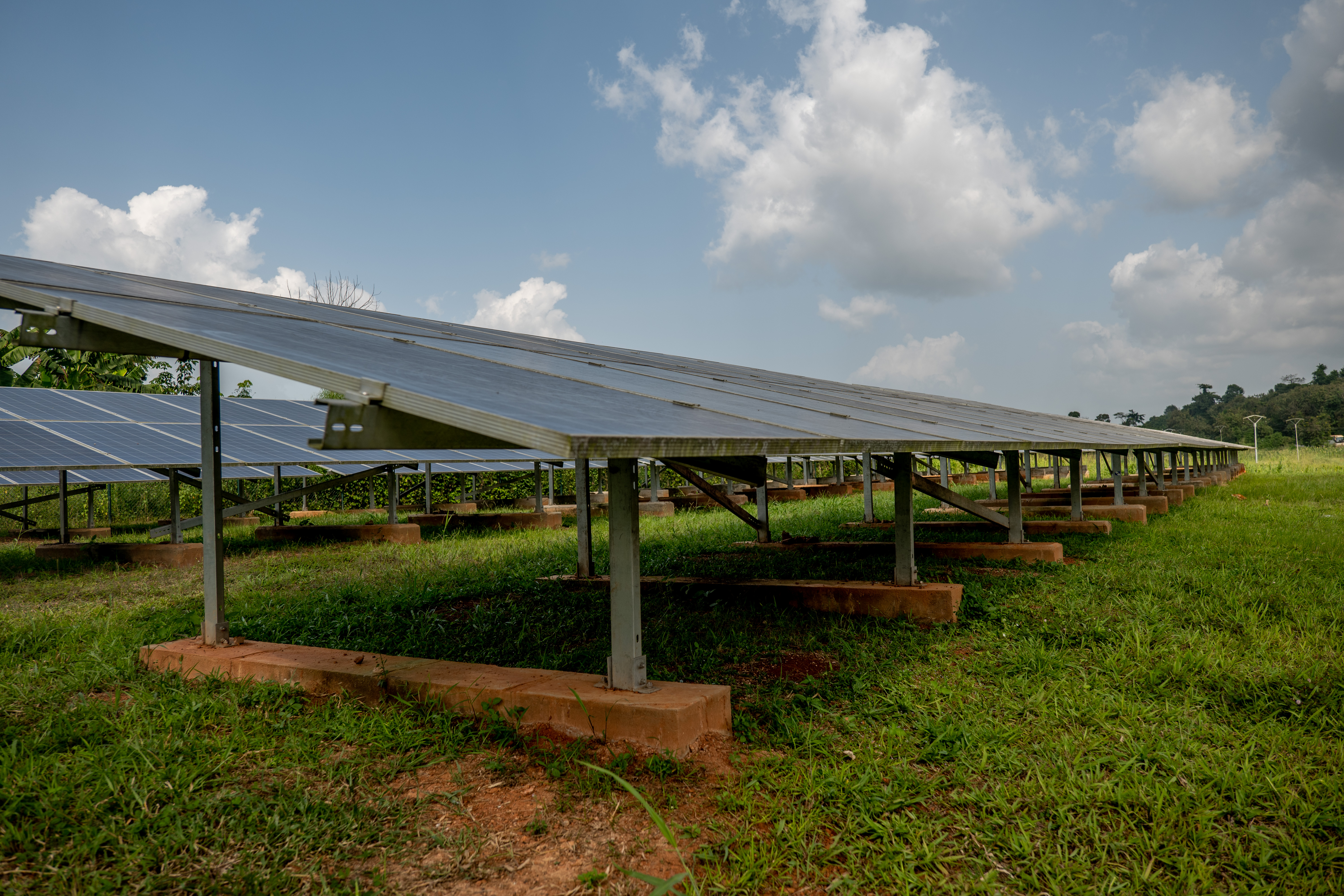
Its village leader, Jean-Claude Koffi Connan, has since expressed his satisfaction with the benefits of the arrival of electricity for the residents, namely the development of income-generating activities: “We used to have to go and get our fish in Tiassalé and eat it quickly. Now, we can keep it in our refrigerators, or even our freezers. Electricity has also made it possible to develop a metalwork activity, as well as a ‘maquis’ restaurant which is essential to social life in the village.”
Beyond the financial aspect, electrification is a real asset for ensuring the quality of life of the villagers. Mr. Koffi Connan is keen to speak about it: “Electricity also means street lighting, for more security, and lighting in schools and homes has made education for young schoolchildren more dynamic.”
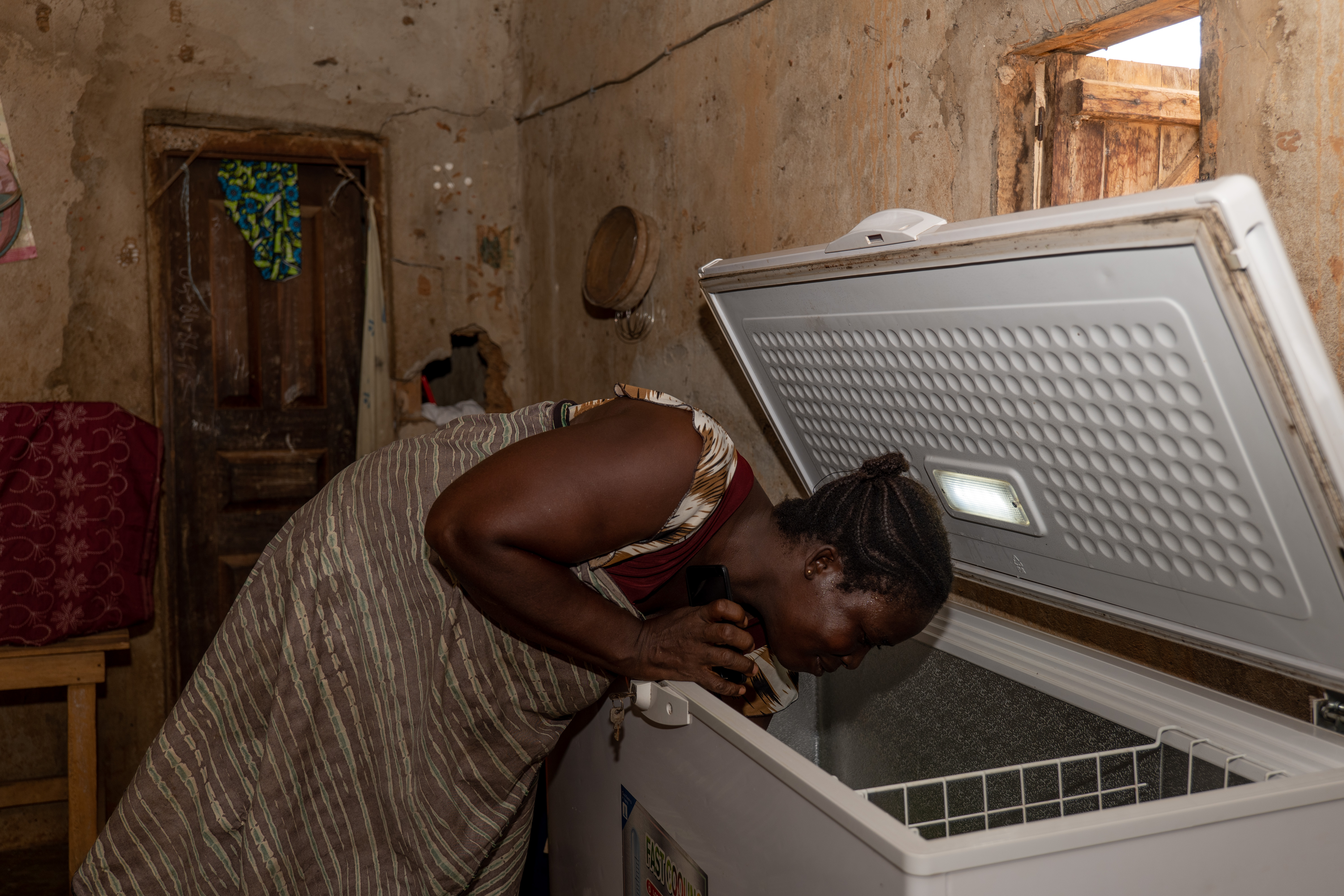 |
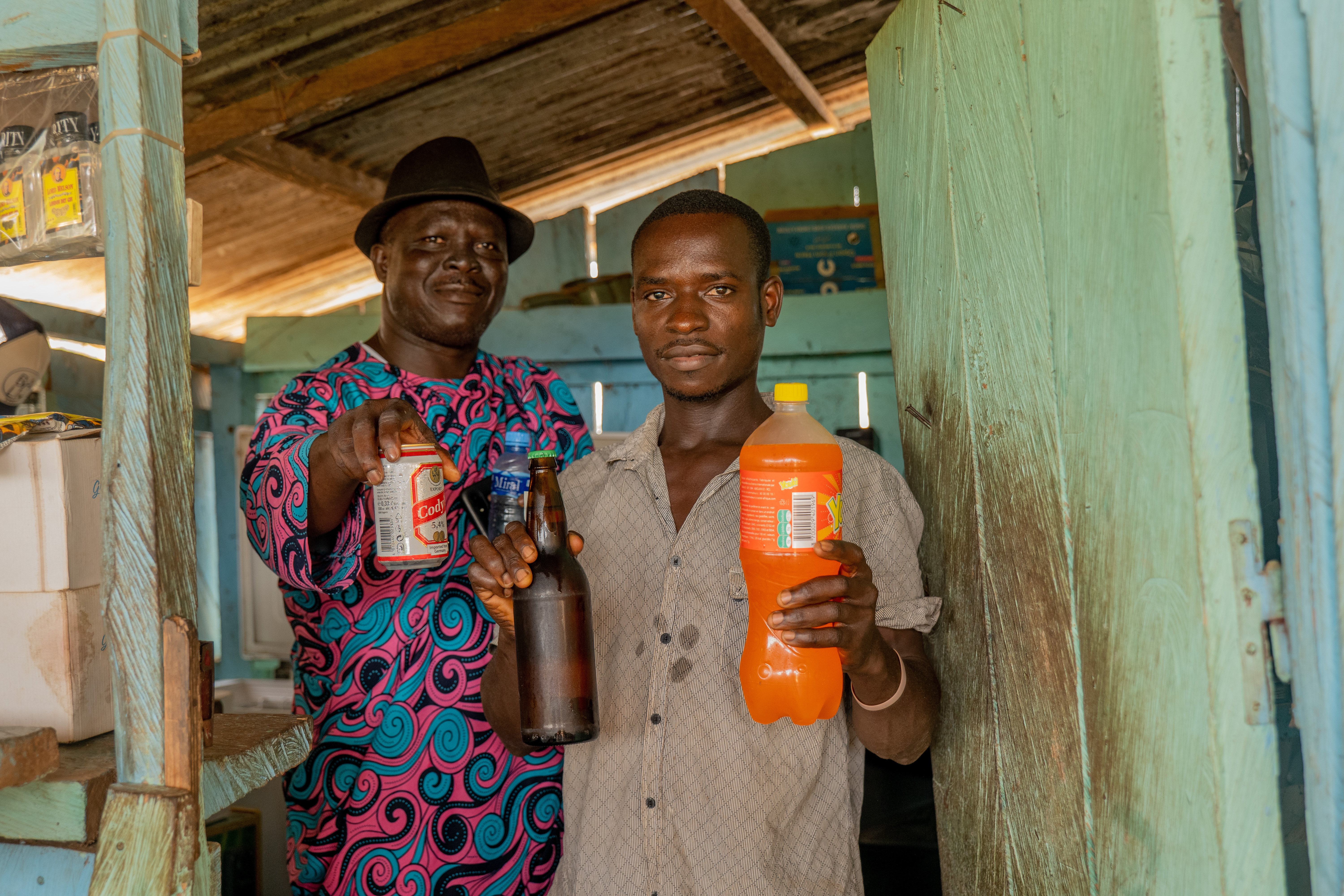 |
In addition to the activities carried out for energy production and grid expansion, the agency is implementing a complementary initiative through the project called MAX (Maximisation of Impacts of Rural Electrification in Côte d’Ivoire), with a budget of €4 million, including €1.25 million for grants to facilitate access to electricity services and equipment in rural areas. It benefits various types of actors: households, the private sector and public authorities.
In this respect, households benefit from access to equipment, where possible energy-saving, and financing for it, with special attention to women. The objective is to improve their living conditions and reduce the cost of electricity bills at a constant service rate.
For professionals, the project aims to facilitate access to electrical equipment and its financing and use to ensure that there is an increase in their incomes and job creation, which contributes to improving living conditions for people.
Progress in the range of local services and products on offer (shops, trades, restaurants, cold storage…) alleviates certain household chores and permanently improves efficiency and productivity in certain areas of activity, such as agriculture and processing.
In addition, the MAX project plays a major role in people’s daily lives, especially for women, by improving the quality of certain public services (education, drinking water, healthcare, sport…) using electrical equipment, in particular by facilitating access to electrical equipment and its financing and use.
The project’s approach focuses as much as possible on operations among and with private operators in distribution chains for electrical equipment and the associated service providers. This thereby involves establishing a system of financial and non-financial incentives to get these operators to change their operating methods so that they fit in with the objectives.
Energy transition: between mitigation and adaptation
At the same time, the objective of ECLER IVOIRE was to contribute to improving energy efficiency in buildings in Côte d’Ivoire, firstly, in line with the directives of ECOWAS and WAEMU, and, secondly, the Building Energy Efficiency Code prepared by the Government of Côte d’Ivoire. Following the evaluation of 72 energy-intensive buildings in Côte d’Ivoire, the SOGEFIHA building, located in the Plateau district and housing several ministerial institutions, was selected to benefit from energy renovation works while the site was in use. The solutions implemented included the renovation of energy-intensive systems (air conditioning-ventilation and lighting), the reinforcement of thermal insulation on the roof, the installation of solar panels to power the building, and the installation of a “Building Management” system. Through these solutions, an analysis of the various uses identified an energy saving of around 40%, with the objective of achieving a very high energy performance of 156 kWh/m² per year, against 254 kWh/m2 per year before the works. The building was commissioned on 14 November 2023, in the presence of the Minister of Energy, the Ambassador of the European Union to Côte d’Ivoire, the General Directorate of Energy, Expertise France, CICOP-CI (prime contractor), and Smart Energie (works company).
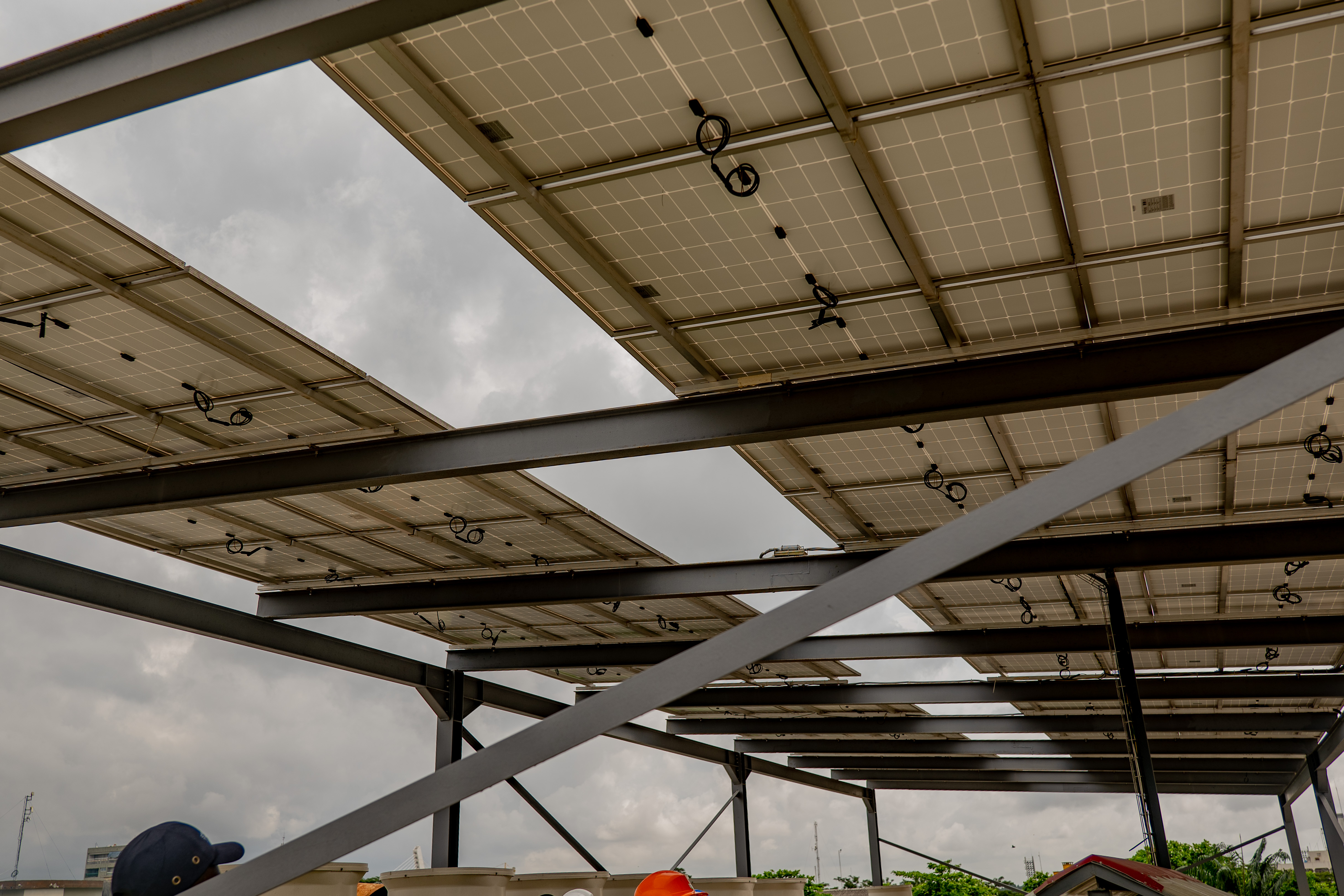 |
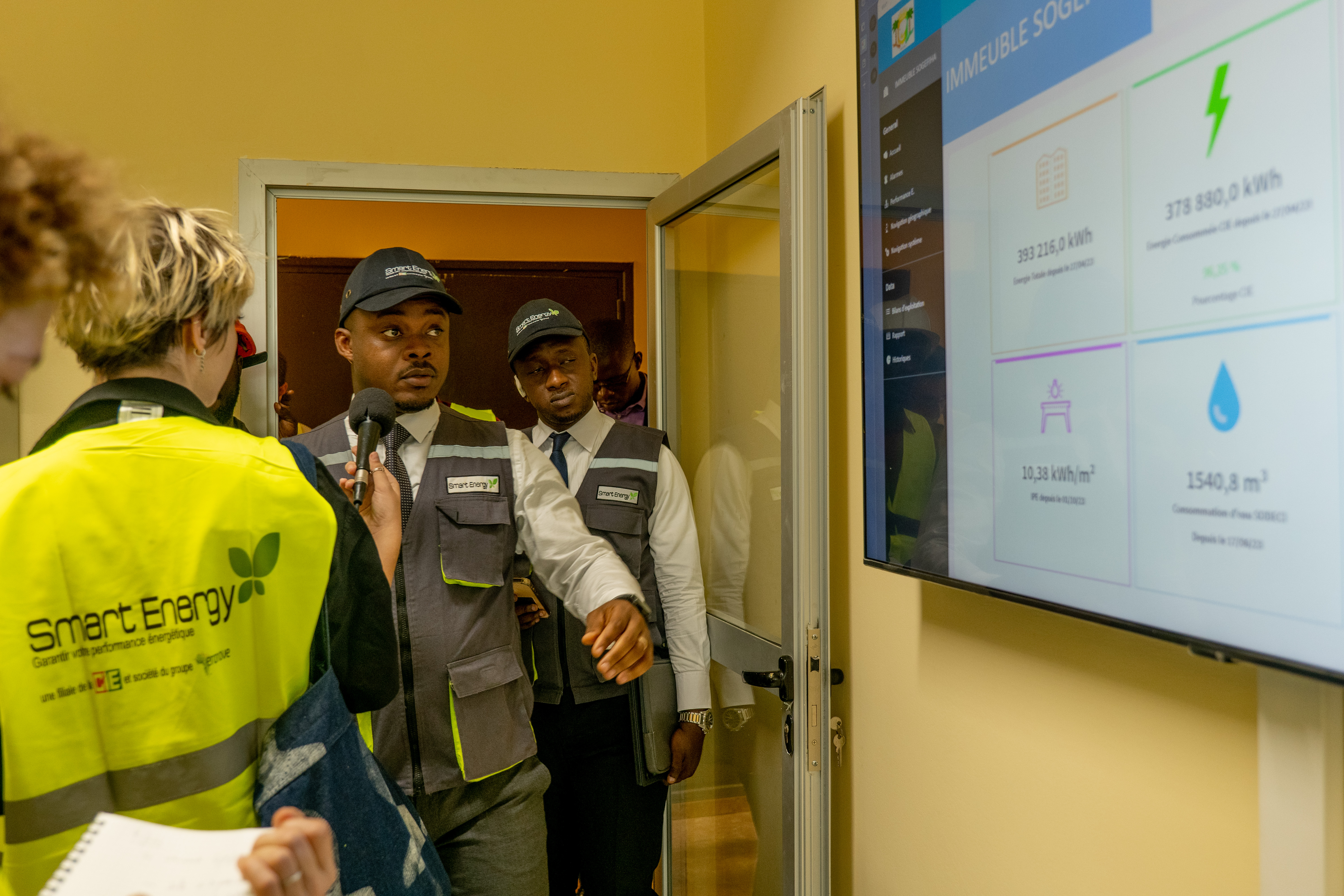 |
The SOGEFIHA tower, which is managed by the Directorate General of the Treasury and Public Accounting (DGTCP), has thereby played a demonstration role, proving the technical feasibility of these solutions to ensure compliance with the Ivorian and regional regulatory framework, and provide a response to the Ivorian Government’s intention of making its property stock more energy efficient.
The success of this pilot project could lead to a replication in all the most energy-intensive public buildings.
Low-carbon trajectory set out in Côte d’Ivoire’s Nationally Determined Contribution
Since the signing of the Paris Agreement in 2015, each country has pledged to build a climate action plan and Nationally Determined Contributions (NDCs), with the aim of reducing their greenhouse gas emissions and adapting to climate change.
To respect these commitments, it is necessary to establish a plan for all sectors of activity, including energy, forestry, agriculture, industry and waste. This requires identifying the needs of all the stakeholders involved in national economic and social development, as well as continuous innovation.
Côte d'Ivoire has made the fight against climate change one of its priorities, by pledging to reduce its greenhouse gas emissions by 30.41% by 2030 in its NDC. In this respect, the Ivorian Government has benefited from technical assistance from Expertise France for the implementation of its NDC for 2022-2030 through the crosscutting Low-Carbon Transition (LCT) programme financed by the EU.
For a period of four years, the agency is contributing to building interministerial and intersectoral coordination to establish a monitoring and evaluation system for the country’s climate commitments.
These commitments concern both climate change adaptation and mitigation. The project aims to support the key sectors (forestry, energy, agriculture and waste) and raise the awareness of civil society about climate change in Côte d’Ivoire.
This participatory and inclusive approach will ultimately aim to mainstream the Climate Strategy into cross-sectoral and sectoral national policies, and to instil an understanding of climate and environmental issues among non-State actors, as well as the resulting dimensions of gender and social inclusion.

